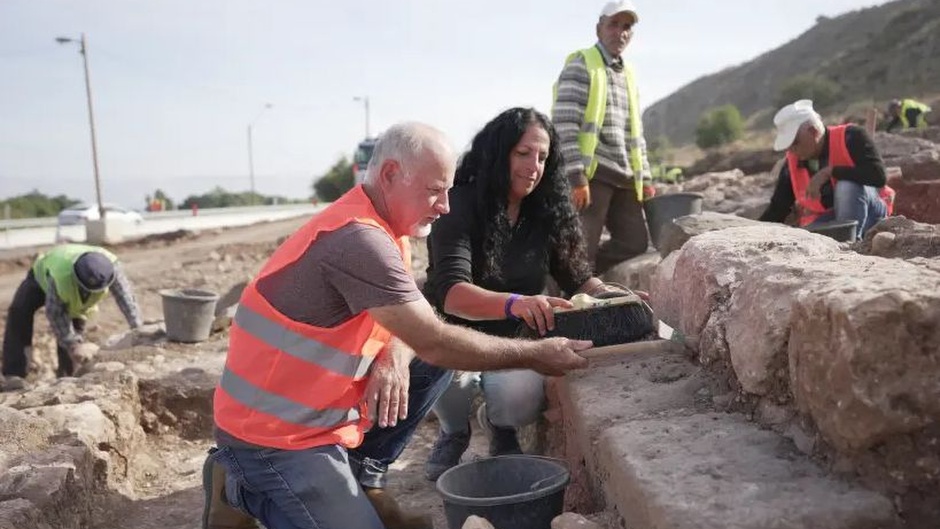Second-period synagogue discovered in Migdal
It is the second synagogue from that time found there, which was a key center of the Jewish life . The New Testament refers to it as the birthplace of Mary Magdalene.
The Times of Israel, Jerusalem Post · JERUSALEM · 23 DECEMBER 2021 · 15:45 CET

A 2,000-year-old synagogue from the Second Temple Period was recently uncovered at in the ancient Jewish settlement of Migdal, on the northwestern edge of the Sea of Galilee.
It is the second synagogue from that time discovered in the town. The new synagogue “is close to the residential street, whereas the one excavated in 2009 was surrounded by an industrial area. Thus the local synagogues were constructed within the social fabric of the settlement”, explained professor Adi Erlich of the University of Haifa in a statement.
“The discovery of a second synagogue in this Galilean settlement casts light on the social and religious lives of the Jews in the area in this period, and reflects a need for a dedicated building for Torah reading and study and for social gatherings” said Dina Avshalom-Gorni, one of the directors of the excavations.
The newly discovered synagogue has a square shape and built in basalt and limestone. It featured a main hall and two side rooms. The main hall was coated in white plaster and there was a stone bench along the walls, also coated in plaster, which was found.
Six pillars held up the roof, and the bases of two of those were also found. One of the side rooms had a stone shelf, which, according to the experts, it might have been used to store Torah scrolls.
Several artefacts of the period were also found at the site, including pottery candle holders, mould-made glass bowls, rings and stone utensils used for purification rituals.
Birthplace of Mary Magdalene
Migdal, also known as Magdala, was an important center of the Jewish life at the time. Flavius Josephus, a Jewish military leader in the revolt against the Romans in the 1st century CE, who later become a Roman citizen and historian, mentioned in its writings.
Furthermore, the New Testament refers to it as the place of birth of Mary Magdalene, of whom Avshalom-Gorni pointed out that “we can imagine her and her family coming to the synagogue here, along with other residents of Migdal, to participate in religious and communal events”.
Published in: Evangelical Focus - culture - Second-period synagogue discovered in Migdal
